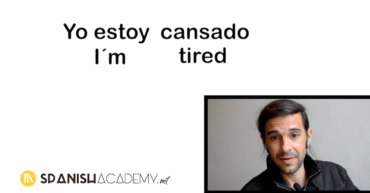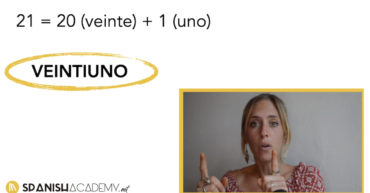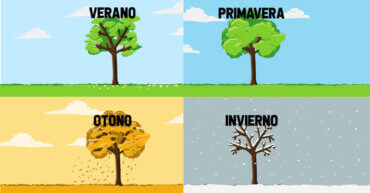Once we have had a throwback on our number’s vocabulary and rechecked them it is time to tell – what time is it?- . Let’s see it and check the small differences from English then: ¿QUÉ HORA ES? WHAT TIME IS (IT)? 1:00 → ES LA UNA (IT) IS THE ONE → (IT’S ONE) ◊ […]
One of the most common questions in Spanish is: ¿Cómo estás? (How are you?) and the answer: Yo Estoy bien/mal (I am good/bad)… It is a temporary state as it changes clearly. Sometimes you are good, tired, sleepy…so, it will take us to the verb Estar (temporary to be). Let’s see temporary adjectives that can […]
let’s have a throwback and see the numbers in Spanish again. So far, it was not really important these numbers vocabulary but when expressing your age; From this post on, we are going to use it quite often whenever we are telling -What time is it- or specially when we are giving a specific time […]
We have already seen the most common expressions to express weather in other posts; our very own non-personal expressions with the verbs HACER, LLOVER and NEVAR, and, the use of the verb SER to describe the weather as we do in English. Those expressions can be interchanged among them, whether the question is made with […]
After seeing our Spanish expression in weather terms –¿QUÉ TIEMPO HACE?-, we are going to describe the weather with the verb SER as you do in English with the verb TO BE, of course. The first thing that needs to be told, is that this is a permanent description. Even though the weather changes, we […]
Here comes the rain. We have to be able, of course, to express when the weather is rainy. We have in Spanish a non-personal verb in a weather matter to express so. This verb is LLOVER in its infinitive form. Let’s see it and we will keep explaining it after: ¿QUÉ TIEMPO HACE EN BARCELONA? […]
Once we have already explained the weird grammatical format of our very own expression of -How’s the weather like?- in another post, let’s start using it. First remember, once again: ¿QUÉ TIEMPO HACE EN BARCELONA? WHAT WEATHER MAKES IN BARCELONA? → (How’s the weather like in Barcelona?) EN BARCELONA HACE CALOR IN BARCELONA MAKES HEAT […]
We are going to learn how to express, as the title of this post says, the weather. We have actually two ways to express so, and both are completely fine. One of these ways is (as we do in English to describe the weather) using the verb SER. The other one, is a very own […]
To start the post, we first are going to see vocabulary related to periods of time; from seconds, up to years. It will take us to the final vocabulary step that is the seasons of the year. Let’s start: INGLÉS ESPAÑOL SECOND SEGUNDO MINUTE MINUTO HOUR HORA DAY DÍA WEEK SEMANA Semana!! Here it […]
In English few is used to express a small indeterminate quantity (countable or uncountable) of a noun. The indefinite quantity adjective will come along with the same gender (masculine/feminine) and form (singular/plural) as the noun. Here it comes the table first: FEW MASCULINO FEMENINO SINGULAR POCO POCA PLURAL POCOS POCAS FEW BUILDINGS POCOS EDIFICIOS […]










